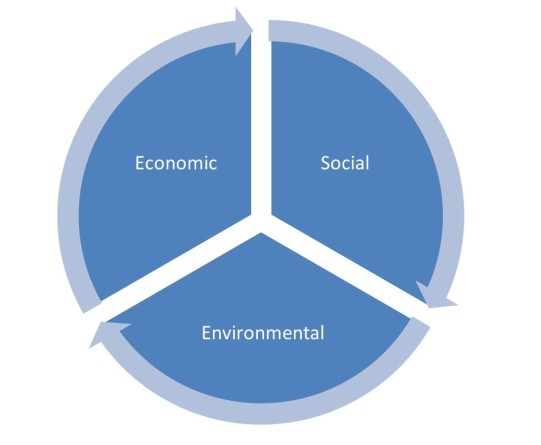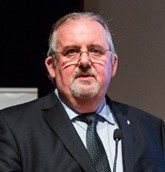A multidimensional value-based approach
FEATURED PAPER
By Massimo Pirozzi, Alessandro Quagliarini, Francesca Apponi, Francesca Brusciotti, Cecilia Buzzi, Antonio Mendicino, Claudia Milani, Davide Raguso
ISIPM (Italian Institute of Project Management)
Rome, Italy
ABSTRACT
A sustainable project focuses on creating and implementing strategies that consider economic, social, and environmental dimensions in a balanced manner. The economic dimension concerns costs, investments, and budgetary sustainability, while the social dimension refers to the relational aspects of an organization with the social context, from the concept of respect and equity to the creation of a common vision, and, ultimately, the environmental dimension aims to respect and protect the ecosystem by implementing projects with efficient use of resources and low environmental impact. Since sustainable projects target diverse types of value, an innovative value-based project management approach is suggested to manage effectively, via appropriate and specific Key Performance Indicators (KPIs), the creation of value for the stakeholders in terms of economic viability, social equity, and environmental stewardship.
THE SUSTAINABILITY IN PROJECTS
The concept of sustainable development is complex and subject to numerous interpretations. Still, the universally recognized definition dates to 1987 and is found in the so-called Brundtland Report – entitled Our common future – which focuses on intergenerational and intragenerational equity principles. For the first time, the report identifies sustainability as the condition of development capable of “ensuring the satisfaction of the needs of the present generation without compromising the possibility of future generations to fulfill their own.”
Over time, the concept of sustainability, compared to its first versions, has undergone a profound evolution which, starting from a vision centered primarily on ecological aspects, has led to a more global meaning which considers not only the environmental dimension but also other dimensions such as economic, social, administrative and value creation.
However, these dimensions have been considered in a synergistic and systemic relationship and combined to different extents, have been used to define progress and well-being that somehow overcomes the traditional measures of wealth and economic growth based on the GDP.
Ultimately, sustainability implies “a constant and preferably growing well-being, based on the dimensions mentioned above and the prospect of leaving future generations with a quality of life no lower than the current one.” However, it should be kept in mind that sustainability is a dynamic concept, such as the relationship between the ecological system and the anthropic system can be influenced by the technological scenario, which, by changing, could loosen some constraints relating, for example, to the use of energy sources.
A sustainable project is a project that contemplates the various dimensions of sustainability, considered essential values in a project, which affect the validity of the same or a mission. This is especially true for large-scale projects involving large economic-financial commitments that have a significant impact. Therefore, a sustainable project considers not only the traditional constraints of a project but also new drivers and implicit objectives, such as sustainability which has often remained outside the scope until today.
Projects play a pivotal role in realizing more sustainable business practices, and sustainability has recently been linked to project management. The project management discipline can be used to ensure that sustainable projects are economically, environmentally, and socially responsible while also creating value for stakeholders. In order to achieve this purpose, it may help the Triple Bottom Line (TBL) approach (John Elkington, 1994).

Fig. 1 – Dimensions of Sustainability
TBL is a framework for assessing the performance of an organization that goes beyond the traditional framework based solely on profits and costs. The emerging literature on this topic indicates that sustainability impacts project management processes and practices (Silvius & Schipper, 2014). In particular, three main sustainability dimensions have been identified: economic, social, and environmental.
The economic dimension of sustainability focuses on a project’s financial feasibility and profitability. The social one deals with the impact of a project on society. There may be ensured that projects promote social well-being, inclusivity, and equity. Finally, the environmental dimension focuses on the impact of a project on the natural environment. A sustainable project should minimize environmental harm and promote ecological sustainability.
More…
To read entire paper, click here
How to cite this paper: Pirozzi, M, Quagliarini, A, Apponi, F, Brusciotti, F, Buzzi, C, Mendicino, A, Milani, C and Raguso, D (2023). Sustainable Project Management: A multidimensional value-based approach; PM World Journal, Vol. XII, Issue VI, June. Available online at https://pmworldlibrary.net/wp-content/uploads/2023/05/pmwj130-Jun2023-Pirozzi-Quagliarini-et-al-Sustainable-Project-Management.pdf
About the Authors

Massimo Pirozzi
Rome, Italy
![]()
Massimo Pirozzi, MSc cum laude, Electronic Engineering, University of Rome “La Sapienza”, Principal Consultant, Project Manager, and Educator. He is a Member of the Executive Board, and an Accredited Master Teacher, of the Istituto Italiano di Project Management (Italian Institute of Project Management). He is certified as a Professional Project Manager, as an Information Security Management Systems Lead Auditor, and as an International Mediator. He is a Researcher, a Lecturer, and an Author about Stakeholder Management, Relationship Management, and Complex Projects Management, and his papers have been published in U.S.A., in Italy, and also in Russia; in particular, he is the Author of the innovative Book “The Stakeholder Perspective: Relationship Management to enhance Project value and Success“, CRC Press, Taylor & Francis Group, Boca Raton (FL), U.S.A., October 2019. Due to the acknowledgement of his comments on stakeholder-related issues contained in Exposure Draft of The Standard for Project Management – 7th Edition, he has been recognized as one of the Contributors and Reviewers of The PMBOK® Guide – Seventh Edition, and he received the Certificate of Appreciation for Excellence for his volunteer contributions to the Project Management Institute and the project management profession in 2020.
Massimo Pirozzi has a wide experience in managing large and complex projects, programs, and portfolios in national and international contexts, and in managing business relations with public and private organizations, including multinational companies, small and medium-sized enterprises, research institutes, and non-profit organizations. He worked successfully in several sectors, including Defense, Security, Health, Education, Engineering, Logistics, Cultural Heritage, Transport, Gaming, Services to Citizens, Consulting, and Web. He was also, for many years, a Top Manager in ICT Industry, and an Adjunct Professor in Organizational Psychology. He is registered as an Expert both of the European Commission, and of Italian Public Administrations.
Massimo Pirozzi is an Accomplished Author and an International Editorial Advisor of PM World Journal. He received three 2020 PM World Journal Editor’s Choice Awards for his featured paper “Project Management for Evidence Based Medicine” (co-authored with Dr. Lidia Strigari), for his Article “Project communications 1.0 and 2.0: from information to interactivity” and for his report from Italy titled “The fight against Coronavirus disease (COVID-19) from the perspectives of projects and of project management“. He received also two 2019 PM World Journal Editor’s Choice Awards for his featured paper “Stakeholders, Who Are They?”, and for his report from Italy titled “PM Expo® and PM Maturity Model ISIPM-Prado®“, and a 2018 PM World Journal Editor’s Choice Award for his featured paper “The Stakeholder Management Perspective to Increase the Success Rate of Complex Projects“.
Massimo can be contacted at max.pirozzi@gmail.com.

Alessandro Quagliarini
Rome, Italy
![]()
Alessandro Quagliarini, MScEng, PMP, MBA, is an experienced Program Manager, with more than 18 years of experience in the ICT sector. He holds a Master’s Degree in Telecommunication Engineering from the University of Rome “Tor Vergata” and a Doctor’s degree in Business Administration from the Bologna University Business School. He got both PMP® and ISIPM-Av® advanced certifications in Project Management, and he is also certified as an Information Management Systems Lead Auditor. He is a Member of the Board of the “Italian Institute of Project Management” (ISIPM) for ten years, and he is an Accredited Teacher in Project Management.
Alessandro is currently engaged in the “Digital Transformation” engineering and industrialization programs of the new Italian “Open Fiber” telecommunications network, with particular focus on the engineering of delivery and assurance processes for the provision of retail, business and industries customers, on the operational management and procurement support for the definition of specifications and contracts, on the definition of operating rules/ instructions for maintenance and of requirements for systems development, on the support to the commercial and regulatory lines for the definition of services and processes for customers (Other Licensed Operators and Industries), and on the definition and management of operations compliance with ISO Standards and International Best Practices.
As a Member of the ISIPM Board, he focuses his volunteer activities mainly on the cultural diffusion of the project management to young people – specifically to high school students and also staff, including teachers. As an ISIPM accredited teacher, he has taught project management in public and private institutions, in schools and in universities. He has experience in the organization of events and as a speaker in conferences, and also in proposing and managing EU-funded projects.
Alessandro can be contacted at a.quagliarini@gmail.com

Francesca Apponi
Rome, Italy
![]()
Francesca Apponi, Ph.D. student in Enterprise Engineering, Engineer, got a master’s degree in Management Engineering at the University of Rome “Tor Vergata.” Her research areas are Marketing Intelligence through Machine Learning and Text Mining approaches. She has a background in statistical analysis and scientometrics. Now, she deals with Data mining and analytics through statistical techniques, artificial intelligence, and machine learning. She is a Ph.D. student representative. She has the Certification in Project Management resealed by the Institution Italiano di Project Management (ISIPM). She is a speaker in seminars on Project Management and Digital Marketing. Her interests are Project Management, Marketing, and Innovation.

Francesca Brusciotti
Rome, Italy
![]()
Francesca Brusciotti, training manager at Trenitalia SPA, got a master’s degree in Architectural Engineering at University of Roma “Tor Vergata”, with a thesis on tensostructure. She has the Certifications in Project Management ISIPM Base® and Advanced® resealed by the Istituto Italiano di Project Management (ISIPM). During university she was president of BEST (Board of European Students of Technology), a major student association, leading the organization of many events, such as engineering competitions and international events.

Cecilia Buzzi
Rome, Italy
![]()
Cecilia Buzzi, Junior Project Manager and PMO. After earning her bachelor’s degree in economics and management from the University of Rome Tor Vergata, she is also finishing her master’s degree in economics and management. As a junior project manager, she is working in international and national contexts with projects covering the world: aerospace, artificial intelligence, and digital transformation for digital sales improvement. She obtained certification in Project Management by “Istituto Italiano di Project Management” (ISIPM) in 2020, her main interests are project management and continuous innovation.

Claudia Milani
Rome, Italy
![]()
Claudia Milani, Tender & Contracts Office at Johnson & Johnson spa, got a degree in Economics and management. She is now finishing her master’s degree in economics and management at the University of Roma “Tor Vergata”. Her interests are Project Management, Public Procurement, and Public Administration in the healthcare sector.

Antonio Mendicino
Rome, Italy
![]()
Antonio Mendicino, Ph.D. student, got a Master’s Degree in Philosophy recognized at the University of Rome Tor Vergata and at the University of Halle-Wittenberg (Germany). He has the Certification in Project Management released by the Italian Institute of Project Management (ISIPM). His research area is Kantian Philosophy and Theoretical Philosophy (especially the theory of perception). During university, he was a student representative, leading the organization of many events. His interests are in project management, social and cultural planning.

Davide Raguso
Rome, Italy
![]()
Davide Raguso, Junior Project Manager at Ri.Cre.S. Srl, got a master’s degree in “Philosophy and ethics of relationships” at University of Perugia. He has the Certification in Project Management ISIPM Base® by the Istituto Italiano di Project Management (ISIPM). His main focus area is EU funding programs. He has experience in the coordination of two European-funded projects (one Erasmus+ and one Life). He also has experience in writing grant proposals.









